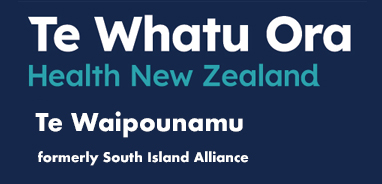 |
| Stroke Study Day 2017: Four members of the organising committee (L) Clare Jamieson, Jane large, Julian Waller, Dr Carl Hanger and keynote speaker, Dr Lynne Clay. |
Almost 250 health professionals working in stroke care across the South Island returned to work with new ideas to enhance their daily practice following the 2017 Stroke Study Day last month. The annual event is focused on improving the quality of care for stroke patients and was attended by service providers, stroke teams, GPs and practice nurses from across the continuum of care – acute care and thrombolysis, through to inpatient and community rehabilitation at home and in residential care.
This year’s case study was a stroke survivor from Christchurch, who took the stage to share his incredible journey to recovery. Eddie was 34 years old when he suffered a stroke following heart surgery. He talked about his experience both in and out of hospital and took questions from the audience, encouraging understanding and learning from a patient’s perspective.
Canterbury DHB community geriatrician Dr Michaela Glanville attended the event at Rolleston Lecture Theatre on 2 November. She says Eddie’s story was “a heart breaking insight into the difficulties of the more silent aspects of stroke, such as severe visuospatial difficulties, bone-numbing fatigue and feelings of grief and loss, whilst trying to maintain a relationship with his partner and toddler son. It made me reflect that we need to see the person, not just the condition.”
Dr Carl Hanger, geriatrician and stroke physician at Burwood Hospital and clinical senior lecturer in medicine at the University of Otago, Christchurch, is one of the event organisers. “Many of the health professionals attending want additional input teaching to upskill themselves, yet don’t have a lot of opportunity to do so. The study day provides one such opportunity.”
The event was video-linked across sites all over the South Island, making it easier for smaller centres to participate, he says. “We had 148 people attend in person and 96 via video conference in Nelson, Blenheim, Greymouth, Buller, Hokitika, Invercargill, Clyde, Timaru and Dunedin. Approximately a quarter were from acute care settings, quarter from inpatient rehabilitation, quarter from primary/community care and quarter from age residential care – we had the mix about right, covering the whole spectrum. It’s great to see such a large group getting excited about stroke care – it bodes well for the future.”
 |
| One of the speakers, Dr Suzanne Busch, presented on imaging, diagnosis and demystifying the medical language of stroke. |
A range of experts also presented at the event, including Dr Suzanne Busch, physician at Nelson Marlborough DHB, who spoke about imaging, diagnosis and demystifying the medical language of stroke. “I was asked to talk about the medical technology of stroke but came to realise that the language we use is often responsible for patients and professionals not fully understanding either the cause or deficits of strokes – it’s much better for our patients and colleagues when we use plain English as much as possible,” she says.
Other speakers included Pauline Owens, a stroke nurse specialist from Counties Manakau DHB, who discussed how stroke care has changed over the years, current challenges and strategies to overcome them including building stroke nurse expertise. Burwood Hospital neuro rehabilitation practitioner Dr John Maasch presented on disorders of object and spatial perception and Dr Teddy Wu, a neurologist at Christchurch Hospital, discussed endovascular clot retrieval.
The event’s keynote address was presented by Dr Lynne Clay, lecturer and graduate research coordinator of the School of Physiotherapy, University of Otago, who spoke about the different stages of spasticity.
Canterbury DHB social worker Beth Munro attended the event and says she particularly enjoyed the presentation by Hector Matthews, Executive Director of Māori and Pacific Health, Canterbury DHB, on Māori perspectives on stroke. “Hector was a very engaging speaker. I was surprised by the high stroke number within the Māori population and that most strokes occur under the age of 65. The quote, ‘Equality is giving everyone a shoe, equity is giving everyone a shoe that fits’ has definitely encouraged me to be more mindful of how our systems and policies align with Māori perspectives and Whānau Ora.”
The annual event was held at the Rolleston Lecture Theatre at Christchurch Hospital on Thursday 2 November and delivered jointly by the Stroke Foundation of New Zealand and the South Island Alliance’s stroke services workstream. Plans are underway for next year’s event, which will be held 1 November 2018.








